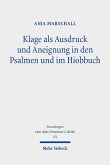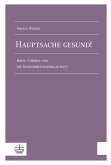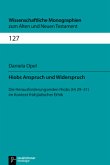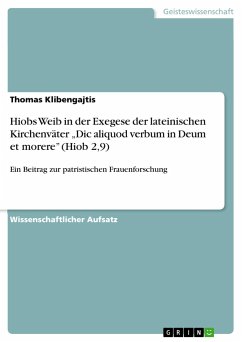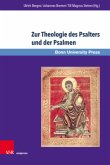Die internationalen Beiträge des Sammelbands untersuchen das spannungsvolle Wechselspiel zwischen Selbstreflexion, Klage und Streit innerhalb der Worte Hiobs. Der erste Teil beleuchtet sowohl selbstreflexive Prozesse als auch anthropologische Grundbestimmungen im Buch Hiob. Im zweiten Abschnitt analysieren die Autorinnen und Autoren Hiobs Gottesbild sowie die von ihm adaptierte Gebetssprache. Dabei kommen neben intertextuellen Bezügen zu den Psalmen auch humorvolle Anspielungen und traumatologische Implikationen der Worte Hiobs in den Fokus. Der letzte Teil ist der sozialen Ausrichtung der Worte Hiobs gewidmet, die nicht nur selbstbezogen reflektieren und zu Gott klagen, sondern auch soziale Zusammenhänge aufdecken und Hiobs Mitmenschen in die Verantwortung nehmen.
Mit Beiträgen von Nikita Artemov, Brennan Breed, Katharine Dell, Juliane Eckstein, Stefan Fischer, Tod Linafelt, Will Kynes, Anja Marschall, Brittany Melton, Hanneke van Loon, Jürgen van Oorschot und Patricia Vesely.
[Job's Speeches. Between Self-Reflection, Lament, and Dispute]
The contributions in this anthology explore the intricate interplay between self-reflection, lament, and dispute within Job's speeches. The first section sheds light on both self-reflective processes and fundamental anthropological determinations present in the Book of Job. In the second section, the authors analyse Job's portrayal of God and his use of prayer language. Alongside intertextual references to the Psalms, humorous allusions and traumatological implications of Job's words also come into focus. The final section is dedicated to the social relevance of Job's speeches, which not only reflect on himself and lament to God, but also reveal social connections and hold Job's peers accountable.
Mit Beiträgen von Nikita Artemov, Brennan Breed, Katharine Dell, Juliane Eckstein, Stefan Fischer, Tod Linafelt, Will Kynes, Anja Marschall, Brittany Melton, Hanneke van Loon, Jürgen van Oorschot und Patricia Vesely.
[Job's Speeches. Between Self-Reflection, Lament, and Dispute]
The contributions in this anthology explore the intricate interplay between self-reflection, lament, and dispute within Job's speeches. The first section sheds light on both self-reflective processes and fundamental anthropological determinations present in the Book of Job. In the second section, the authors analyse Job's portrayal of God and his use of prayer language. Alongside intertextual references to the Psalms, humorous allusions and traumatological implications of Job's words also come into focus. The final section is dedicated to the social relevance of Job's speeches, which not only reflect on himself and lament to God, but also reveal social connections and hold Job's peers accountable.


